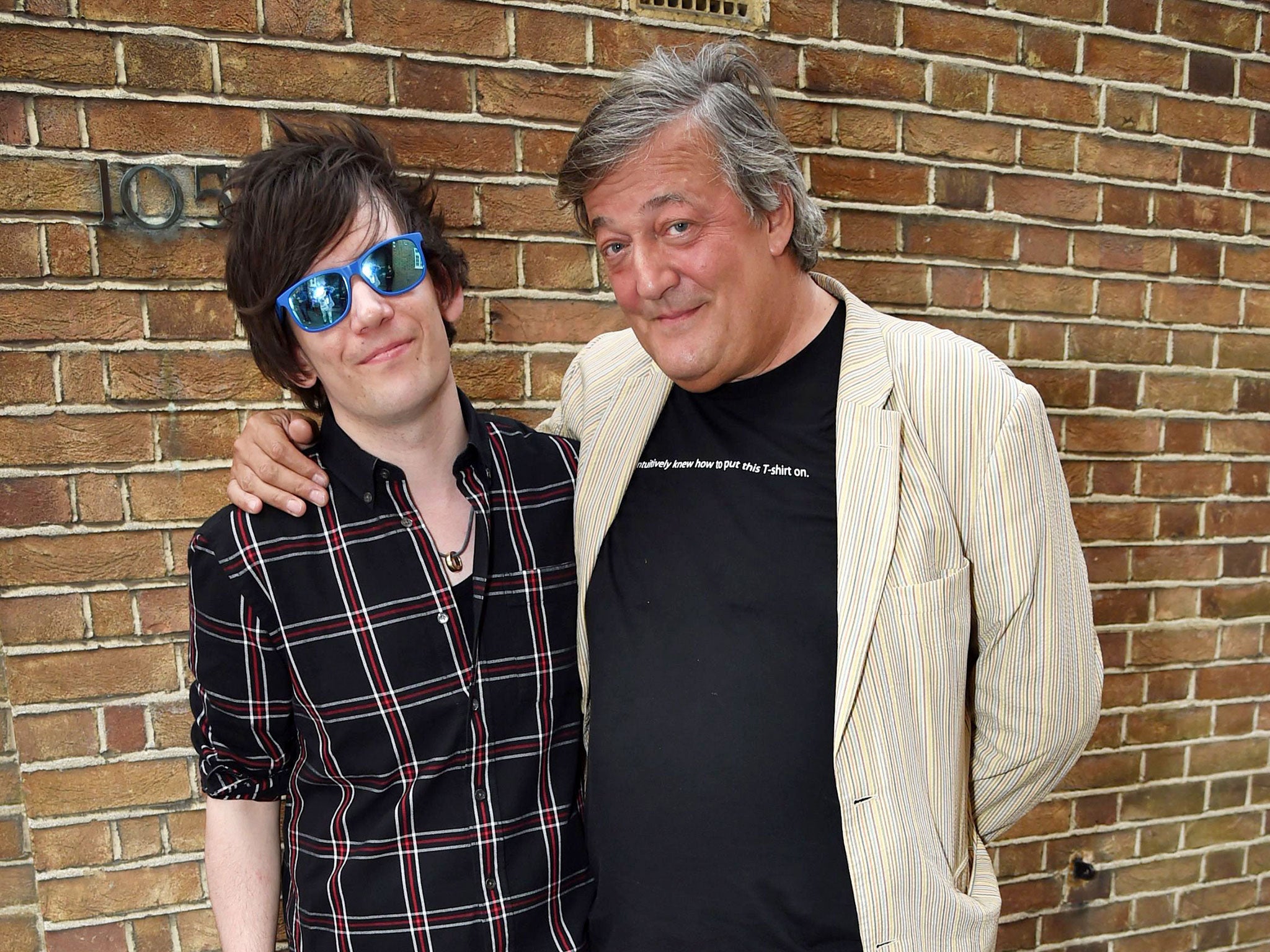Speak My Language and Other Stories, edited by Torsten Højer, book review
This often dark collection of short stories explores what it means to be a gay man

What does it mean to be homosexual? And how does the gay world differ from the straight world? These are the questions all gay people ask, and today the answers can be found in the homosexual lives reflected back at us from every quarter. But when Stephen Fry was a child in the 1970s, he tells us in his introduction to this new collection of stories by gay men, it wasn't so easy.
Fry grew up in rural Norfolk and his first taste of gay culture was an adaptation of The Importance of Being Earnest on a fuzzy TV. Captivated by the language, he asked in the mobile library for books by Oscar Wilde and retreated to his bedroom with the complete works. He found no overt homosexual acts there but the tone, he remembers, “touched a part of me that I couldn't quite define, but disturbed and excited me very deeply indeed”. Through reading Wilde, and writers such as Jean Genet, Gore Vidal and Ronald Firbank, Fry discovered the gay world and believes there remains “something special about literature which addresses our innermost sexual and amatory selves”.
There are certainly special things to be found among the 40 stories that follow his introduction. Many gay men will relate to the more conventional tales, such as Nick Alexander's “What You Left Behind” in which fiftysomething Mark has been jilted by “gym-built Jonathan”, the latest in a line of short-lived boyfriends. As he recalls each of them, he seeks solace in the words of his favourite, Ewan, who suggested that “his life of many lives was denser, was richer, was less monotonous than the monogamy he pined for.”
But it is in the darker stories that the transgressive gay seam mined so richly by Wilde in Dorian Gray, or Patricia Highsmith in her Ripley novels, begins to emerge. In “W.G.”, Tim Ashley's central character is a psychopathic art collector who will stop at nothing to get what he wants, whether it's the Mona Lisa or – “this most beautiful of things” – the handsome henchman who secures it for him. And in Damian Barr's delicious thriller “The Bargain”, we suspect a grim end awaits the man who finds himself trapped in a room full of gory paintings by Francis Bacon.
The loneliness and misery of many gay lives is a common theme. But while the ghost of one chilling story turns out to be a grisly suicide, the pain suffered by Brân in “Halfway House” is magically healed by a 7ft angel with swan-like wings and flawless buttocks who – after peeling off his jeans – reveals the true nature of paradise to Brân on his deathbed.
Too often the experience of gay immigrants is overlooked, and two stories stand out for their moving tales of African men. In Diriye Osman's “Shoga”, 17-year-old Waryaa, a Somalian living in Kenya, gets “sex-funky” with the horny houseboy and is rejected by his beloved grandmother before escaping to England. Meanwhile in John R Gordon's “The Parasite that Grew Bigger than the Animal”, we observe Tunde as he attempts to enter Britain as an asylum-seeker. His case officer, a fellow Nigerian, warns him: “The gays here… they don't give one fuck for the gays of Africa… They would rather take drugs and go nightclubbing.”
More than a century after Oscar Wilde wrote those works which initiated Stephen Fry into homosexual life, stories are still showing us what it means to be gay, and this collection – with its pleasures as well as its pains – is the perfect primer.
Robinson, £12.99. Order at £11.69 inc. p&p from the Independent Bookshop
Join our commenting forum
Join thought-provoking conversations, follow other Independent readers and see their replies
Comments